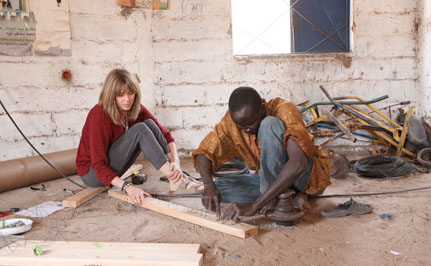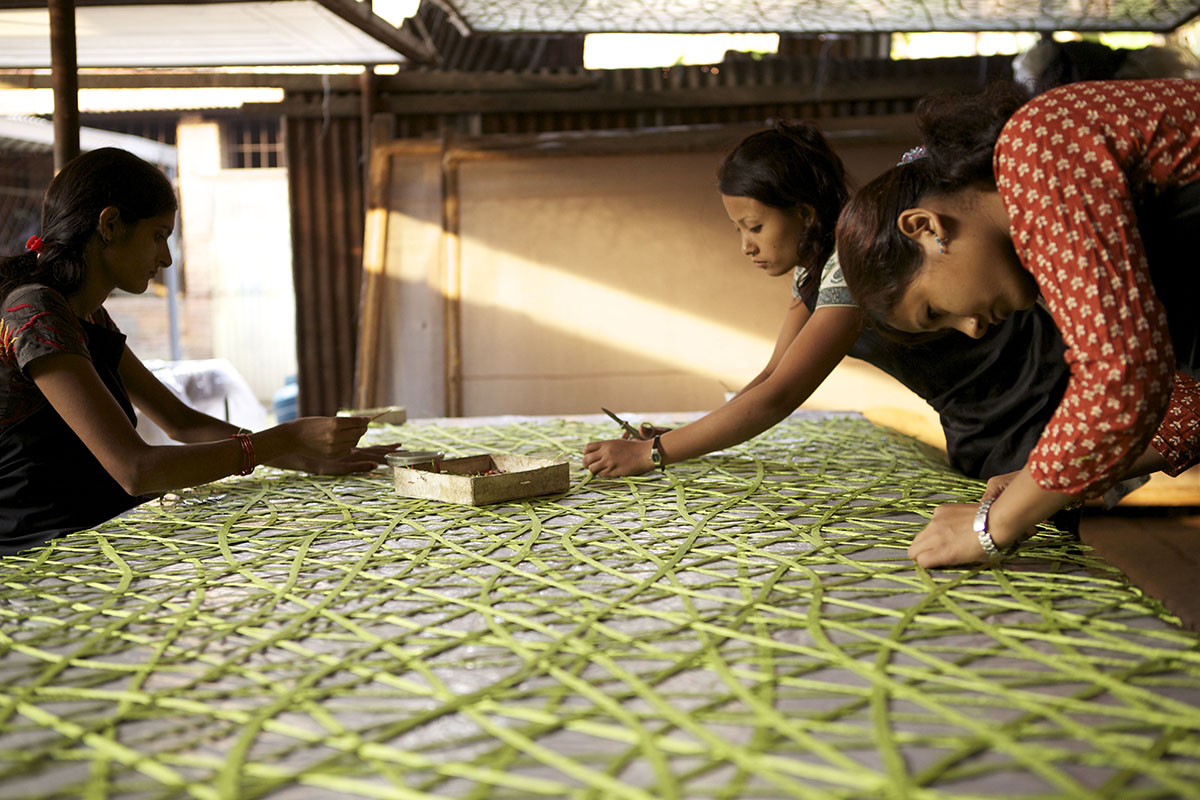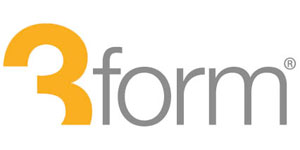
April 29, 2014
In Progress: 3form’s Plans for Path to Zero and Carbon Neutral
A look at how the materials manufacturer plans to go carbon neutral and beyond.
Each year, there is more reason for us to invest time or energy into the urgency of sustainability—be it a hurricane, near-record breaking winter, garbage islands in the ocean, or declining abilities of this planet to simply sustain future generations
At Metropolis, green design is our passion. We see it as a growing movement that requires cooperation from both sides of the aisle. Manufacturers must do their part to produce their products as responsibly as possible, and architects and interior designers should consider these alternatives for their projects.
We invited 3form to join us for a Twitterview in honor of Earth Day, so that the brand could share its work with the design community. We challenged Mike Johnson, the brand’s new sustainability director, to discuss his experiences at the company and demonstrate how 3form is reaching for a new level of transparency in design.
Tuesday’s talk brought out many themes:
- Sustainability is an ecosystem: no one measure will make you sustainable
- By training your people to genuinely engage in sustainability, you’ll find new innovations
- Eco is a competitive advantage: it inspires you to seek new ideas all around the world
- Reevaluating waste as an opportunity to create commodity can produce a revenue stream
- It’s about transparency
Let’s see how 3form stacks up in the green arena.
Zero Waste

Since 2007, the material manufacturer has been on an evolving 10-year Path to Zero program that is committed to achieving zero manufacturing waste, as well as achieve carbon neutrality at 3form headquarters. These measures—together with an emphasis on increased recycled content and good stewardship thinking in products, leadership, transparency initiatives, and meaningful engagement with its employees and global community—have become the essence of its sustainable spirit.
New this spring, the Reform project will give its second-quality materials a new purpose by making smaller or less-than-perfect pieces available to artists, upcyclers, homeowners and others looking on the 3form website, saving them from waste to energy final disposition.
Complex Sustainability

The Full Circle Reclaim Bowl. 100% of sales from these bowls benefit Design Build Bluff, where UT architecture students design energy-efficient homes on Navajo Reservations.
Mike Johnson likes to use a Full Circle Reclaim Bowl to illustrate the brand’s thinking. The Full Circle program works to source direct-trade materials like silks, or indigenous craftwork, which is purchased from small communities of artisans around the world. Many of the handmade resin interlayers that 3form is known for are a direct result of the Full Circle program.
This interlayer is then incorporated into a resin panel, which contains a high percentage of recycled content (average 40 percent). This happens in a domestic manufacturing facility, managed with zero-waste goals, managed with a selection of healthy employee benefits. From there, most products are shipped off to projects. Any imperfect, or second-quality, pieces are given a new life in the form of Reclaim bowls or through the direct-purchase Reform program.
It makes for a great design story, but this initiative is also rooted in a desire to provide a better standard of living for these international artisans through business—often facilitating healthcare, education and responsible infrastructure for the community.
Human-Centric Work

VP of design, Jill Canales, in Ndem, Senegal working with an artisan. The result of the collaboration will debut alongside other new launches from 3form this spring at HD Expo and NeoCon.
As Mike Johnson said in last week’s Twitterview, “We try to be thoughtful about impact—both human and material. Environmental responsibility, preservation of indigenous cultures, health of building occupants and employees’ engagement—these really do matter.”
3form supports the betterment of its talent in many ways. 3form employees in manufacturing plants are eligible for tuition programs to further their professional development.
Product Development
Old-fashioned product development is often a starting point, before reaching out to communities. “To us, design is about beauty, thoughtfulness, humanity and positive impact—to the eye and the community,” says Mike Johnson; “Responsibility, consciousness—these things show in quality, and quality endures the whims of fashion.”

Nepalese villagers making the ornamental portion of the Connection partition. 3form’s work with this community as single-handedly revived the silk industry in this region of Nepal.
So if it takes a village to be green, what’s 3form’s formula for success within its own organization? The brand teaches not just how but why. They make it fun. And then it gets contagious. Walking the green talk will encourage employees to not only cooperate with existing sustainability initiatives, but innovate new ones. “Find creative ways to reduce your footprint by utilizing in-house knowledge; those closest to the processes will likely find a better path,” said Mike Johnson. “Changemaking is not only top-down. Innovation happens in every department, at every level.”






